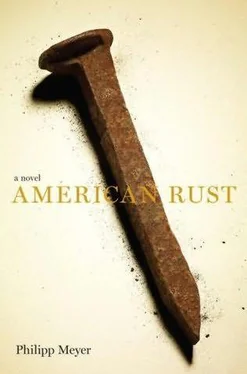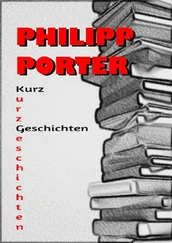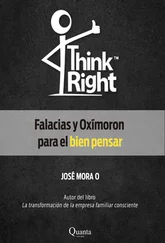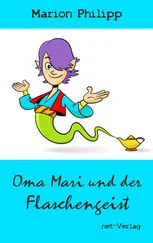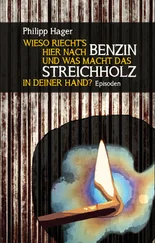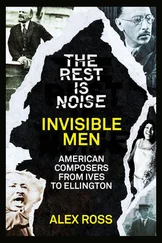There were some pressing decisions as well. The city council had just come out with the new budget, the infrastructure was crumbling, and the EPA had ordered the city to repair the sewer system, which had been spilling sewage into the Mon during heavy storms. The Buell PD's share of the budget had gone from $785,000 to $541,000—the biggest cut in the department's history. In addition to cutting back training and keeping the department's already clapped- out vehicles in service indefinitely, he would have to lay off three of his full- time guys. Which was nearly everyone.
He looked at his six- by- six elk and wondered when he'd be able to get to Wyoming again. Not till after retirement. As of next month, the department would consist of him, Steve Ho, Dick Nance, and twelve part-timers. Bert Haggerton was gone for sure. No one would miss him. But Harris would also have to get rid of Ron Miller, who had kids in college. Miller, who he'd known twenty years. But Miller was lazy, a clockwatcher, if Miller got a call in the middle of lunch, he would order dessert. Jerzy Borkowski, who was also going to get cut, was no better. They were small- town cops but things were changing, you needed a different attitude, the Mayberry days were over. He felt another surge of relief at keeping Steve Ho — he'd thought the council would make him keep Miller, who was the most senior officer. He could probably lie to Borkowski and Miller — tell them the council had made the decision on who to fire and who to keep — but in a town this size they would hear the truth soon enough. Neither one of those men would ever speak to him again. He would have to accept that. Haggerton wouldn't, either, though he didn't care about Haggerton.
The steak, he thought. He went out and flipped it. All was not lost.
“Beat it,” he told Fur, who was inching closer to the grill.
Eventually, everyone knew, the department's budget would be cut again and the Buell police would cease to exist — they would have to merge with the Southwest Regional out of Belle Vernon. Three years before there had been another budget crisis; the city ran out of money in late November and for the last four weeks of the year all the city employees went to the Mon Valley Bank and took out loans in lieu of paychecks. On the first of the New Year everyone took their loan slips to the city cashier's office and the city paid them off. Harris was pretty sure those things did not happen in other places.
The Valley's population was growing again but incomes were still going down, budgets still getting smaller, and no money had been put into infrastructure for decades. They had small- town budgets and big- city problems. As Ho said, they were approaching the tipping point. Most of the other Valley towns, with the exception of maybe Charleroi and Mon City, were over the edge and would never come back. The week before, a man had been shot in the face in broad daylight in Monessen. It was like this all up and down the river and many of the young people, the way they accepted their lack of prospects, it was like watching sparks die in the night. Just to get an office job you had to go to college and there were not enough of those jobs to go around — there could only be so many computer programmers, only so many management consultants. And of course those jobs were moving overseas now at the same rate they'd once shipped the steel jobs.
He didn't see how the country could survive like this in the long run; a stable society required stable jobs, there wasn't anything more to it than that. The police could not fix those problems. Citizens with pensions and health insurance rarely robbed their neighbors, beat their wives, or cooked up methamphetamine in their back sheds. And yet, everyone wanted to blame the cops — as if the department could somehow stop a society from collapsing. The police need to be more aggressive, they would say, until you caught their kid stealing a car and twisted his arm a little hard — then you were a monster. Civil rights violator. They wanted easy answers, but there weren't any. Keep your kids in school. Hope those biomed companies move down here.
In the meantime, enjoy what you can. He fixed his plate and gave Fur his two cups of kibble. The dog looked longingly at Harris sitting there with his plate in his lap, his steak and his chive potato. Harris shrugged and went on eating.
There would be time later for a nice fire, maybe he would finish that book. James Patterson. He would forget about Billy Poe.
“Get over here, meathead.”
Fur came and sat down next to Harris, knowing he was about to get some steak.
— —
When he went into the office the next morning there were already messages. The important one being from the DA — they'd found a witness in the case who claimed to have been present at the time of the murder. The witness was fingering a football player whose name he couldn't remember, but he was positive he'd know him in a lineup. Did that ring any bells?
Harris returned the call but the DA was out somewhere. He sat at his desk and rubbed his temples. His little stunt with the jacket had not mattered one bit. It was still there, for all he knew, but it was no longer relevant. Murray Clark — the name of the witness — Harris ran him in the computer. DUI in ’81, another one in ’83, an arrest in ’87 for disorderly conduct. Nothing since. He rubbed the stiff muscles on his neck. A man who had, most likely, turned himself around. Not enough to discredit him on a witness stand. He switched off the computer monitor. He couldn't let himself think about this anymore — it would turn him inside out.
The office felt hot; he opened all the windows and sat down in his big leather chair, looking over the river, leg bouncing. He deserved a cigar. It would clear his mind. The humidor was right there. The air currents were good — the smoke wouldn't bother anyone. After finding the one he wanted and lighting it he eased farther into the chair, savoring. A glass of whiskey would top it off. You're going a little far now, he told himself.
It was a good place, his office. More of a clubroom, really. Everyone hated the new building and he didn't blame them, cinderblock and fluorescent lights, but it was all what you made of it. The old building had cost a hundred grand a year to keep in operation. Of course, it had also been a piece of artwork — towers and gables and wood panels inside, high ceilings, open spaces. You felt like someone working in a place like that. The new place, everyone rightfully said, looked like a garage.
He turned the smoke around in his mouth. He thought about Grace, looked at his own skinny legs and scuffed ropers on the desk, then around the office again. He'd salvaged a few things from the old building, this big oak desk, table lamps, leather furniture, a few impressionist paintings of the Valley as it had been in the old days, men poling flatbot-tom boats up the Mon, the night sky glowing orange above a steelmill. There were deer heads, another elk, a moose he'd shot in Maine. One of the deer was a little spike that the taxidermist had been embarrassed to mount. But Harris had carried that deer from deep in the woods, it was the last day of the season and he'd walked in four miles and got his deer and then carried it out, four miles, the others on the wall had similar stories, none of them were trophies but they all reminded him of times he liked to think about, times that had turned out better than they should have.
As for Billy Poe he'd dealt with this a million times — it was the downside of working in a small town, knowing who you arrested, knowing their mothers. In this case, sleeping with their mother, though obviously it was more than that. There was a mountain of paperwork as always but he decided to let himself watch the river for a while, twenty minutes to sit and watch the sky change, the river just flowing, it had been there before man laid eyes on it and it would be there long after everyone was gone. It was a good way to clear his head. Nothing mankind was capable of, the worst of human nature, it would never linger long enough to matter, any river or mountain could show you that — filthy them up, cut down all the trees, still they healed themselves, even trees outlived us, stones would survive the end of the earth. You forgot that sometimes— you begin to take the human ugliness personally. But it was as temporary as anything else.
Читать дальше
